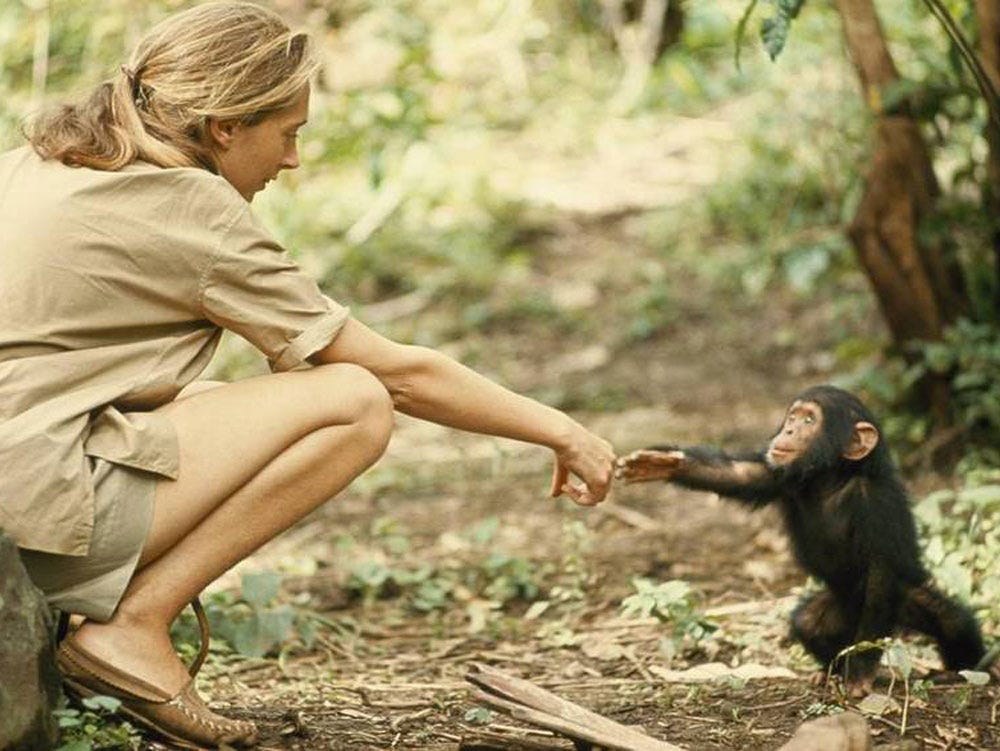David Greybeard
When Jane Goodall went to live in the jungle in Africa in 1960, all odds were against her.
After months of patience and little results, one chimp, David Greybeard, finally approached her.
Jane offered him some fruit. Yet surprisingly, he took it and dropped it.
He then gently squeezed Jane's hand.
That's how chimps reassure each other.
David lost his fear for Jane and let her get close.
Through an unspoken language of touch, he told her he trusted her, and soon the rest of the troupe would do the same.
No one would have expected that Jane would go on to become one of the most beloved people on the planet.
Typically these research efforts or adventures were reserved for men and those who had advanced degrees. Jane didn't even have a degree and was a twenty-something woman.
She loved animals so much that she gave herself an advanced degree through reading books and as a result had no preconceived notions from traditional schooling.
As she began observing these chimps, she gave them names.
She documented their human-like personalities.
She observed that they could make tools.
When the science community read her work, they disclaimed her methods and findings.
Animals shouldn't have human names like David Graybeard. They should be given a number.
Animals were lesser than humans and couldn't have human-like personalities like humor, love, greed, disappointment, and anger.
Animals certainly weren't capable of making tools. That was reserved for the superior humans.
But she backed up her research efforts with evidence and photographs that shocked the world.
She proved that chimps are indeed our closest relatives and capable of human-like achievements.
Because of her efforts, we know why it’s essential to care for chimps and the environment they reside in.



